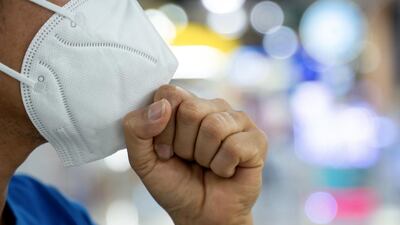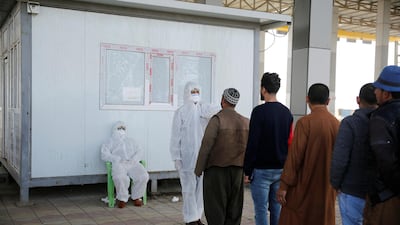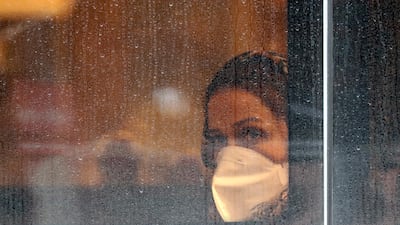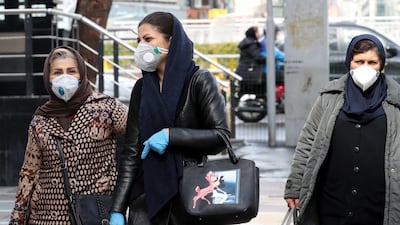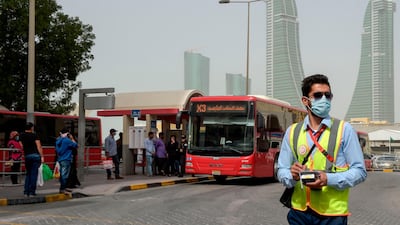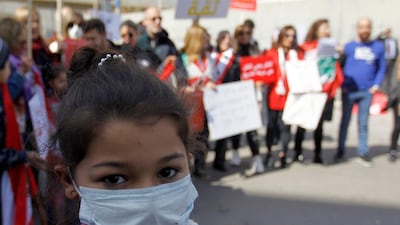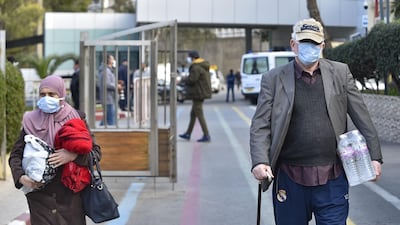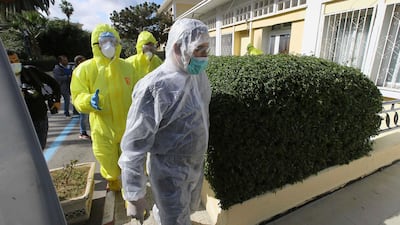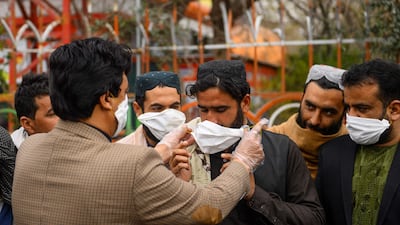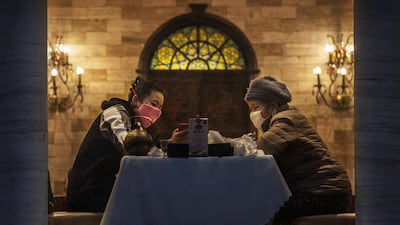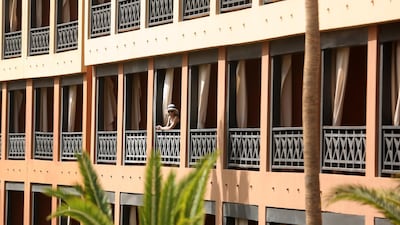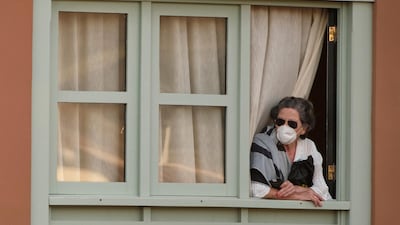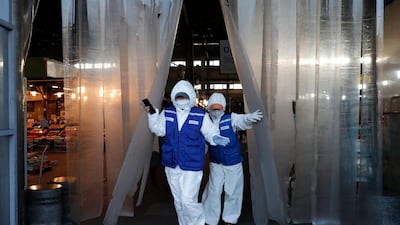Six new cases of Covid-19 were reported in the UAE on Thursday, as two patients recovered from the virus, the Ministry of Health and Prevention said.
The new patients include four Iranians, one Chinese citizen and a Bahraini, the ministry said. All had recently travelled to the UAE from Iran - where 254 people have been infected and 26 have died in the past few days - prior to the country’s ban on all flights from the Islamic republic.
The six new cases, detected using the UAE's early screening system, bring the country's total to 19.
On Thursday, the ministry also announced that two people from China, aged 36 and 37, had recovered - bringing the total number of healed patients in the UAE to five. One of the healed patients, a 36-year-old woman, belonged to the family from Wuhan who became the UAE's first four cases of coronavirus in January. The entire family has now made a full recovery after being treated in UAE hospitals.
The Ministry said 28 people, who had come into contact with some of the infected patients, were being monitored and tested for the virus, which originated in Wuhan, China, but has since spread across the globe.
The announcements came as the UAE's Federal Authority for Identity and Citizenship issued a decision to temporarily suspend travel using only the national identity cards of Gulf Co-operation Council countries.
Typically, citizens of the GCC can travel within member countries using only their identification card. As of Friday, GCC citizens must now carry their passports too so that the movement of travellers, who go to countries where the virus is present, can be monitored.
"UAE citizens residing abroad who left the country using their ID cards, as well as GCC citizens who entered the UAE prior to the decision, are exempt," the authority said in a statement carried by state news agency Wam.
"These procedures are temporary and subject to review and reassessment."
A similar decision was made in Saudi Arabia on Thursday, when the Kingdom temporarily banned religious visits to the country amid concerns over the spread of coronavirus in the region and the safety of pilgrims.
The Ministry of Foreign Affairs announced it would temporarily suspend entry to the kingdom for visits to religious sites including Makkah and Madinah as part of a range of precautionary measures, the Spa news agency reported.
The country has also suspended entry for those with a tourist visa from countries with confirmed outbreaks of coronavirus.
Covid-19 is one of seven known coronaviruses which can infect people – four of which result in symptoms no more serious than the common cold.
The exceptions include Sars, which has a fatality rate of 14 to 15 per cent; Mers, which kills about 35 per cent of people it infects; and the new virus, which has a fatality rate of around 3 per cent, according to the latest data.
Like Sars and Mers, the Covid-19 can lead to pneumonia.
A timeline of coronavirus cases in the UAE
January 29
The UAE announces its first four cases of the new coronavirus in a family from Wuhan. The mother, father, nine-year-old girl and grandmother arrived in the Emirates on January 16 and first sought treatment on January 23 after the grandmother developed flu-like symptoms. All four family members subsequently developed the disease.
February 1
A fifth case is announced in the UAE, having been detected in a male patient from Wuhan. He is in a stable condition and receiving medical care, according to the ministry.
February 2
Dr Hussein Al Rand, assistant undersecretary at the ministry announces the family of the fifth case is clear of infection. The man remains in a stable condition in hospital.
February 8
Two new cases are confirmed in the UAE, bringing the total number of people in the country with the illness to seven.
They include a Filipino, who is the first non-Chinese person to test positive for the illness in the UAE. The other case is in a Chinese citizen.
February 9
Health authorities announce a Chinese woman becomes the first patient in the UAE to recover from coronavirus.
Liu Yujia, 73, contracted the virus in China, then travelled to the UAE, where she began to experience symptoms. She was among the first four cases who tested positive for the virus in the UAE.
February 10
The UAE announces its eighth case in an Indian national, who became ill after “interacting with a recently diagnosed person” according to the ministry.
One coronavirus patient is in intensive care, with six in a stable condition, according to the ministry.
February 14
Two more patients make a full recovery. The 41-year-old man and his son, who is eight, were among the first four cases detected in the UAE in late January. It is understood the fourth patient, the mother, remains under medical care. This brings the total number of recovered patients in the UAE to three.
February 16
The UAE confirms its ninth case of the virus in a 37 year-old Chinese citizen. The patient is in a stable condition.
February 21
Two new cases of Covid-19 are confirmed in the UAE. They include someone from Bangladesh, 39, and the Philippines, 34.
February 22
Two patients, an Iranian couple aged 70 and 64, are announced in the UAE.
February 27
Six more cases of coronavirus are announced as two patients make a full recovery. The new patients include four Iranians, one Chinese citizen and a Bahraini citizen who had all recently travelled to Iran. These bring the UAE's total number of cases to 19 and the total number recovered to five.
